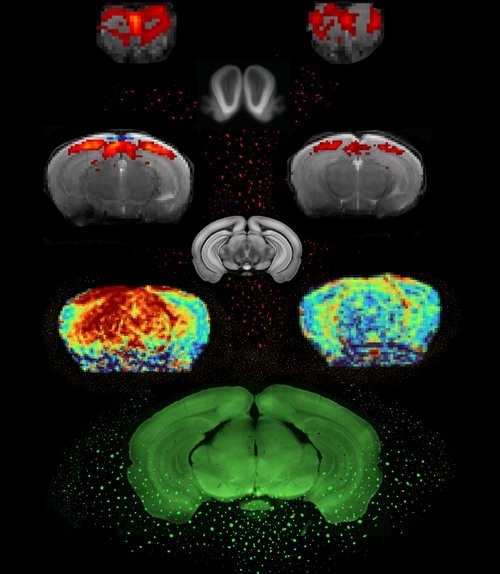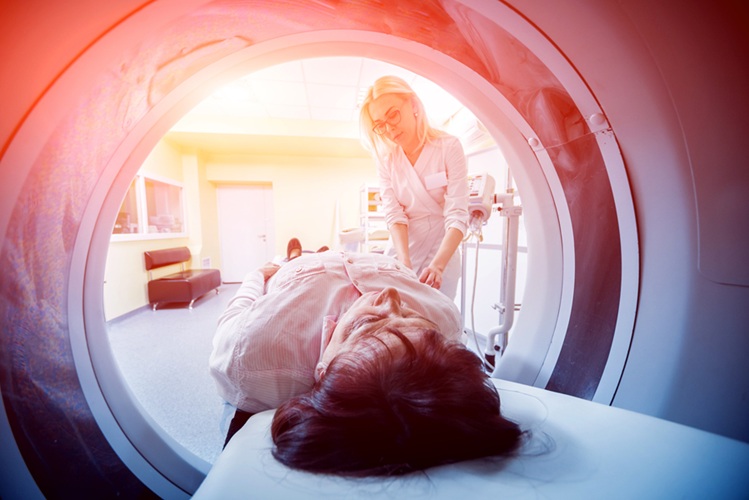Siemens and Asklepios Expand Cooperation in the IT Sector
|
By MedImaging International staff writers Posted on 15 Dec 2008 |
Siemens Healthcare (Erlangen, Germany) and the Asklepios Hospitals (Hamburg, Germany) will continue to expand their cooperation in the information technology (IT) sector. The hospital information system i.s.h.med, installed to date in eight major hospitals of the Asklepios hospital chain, will be expanded by adding elements that further enhance its performance, including a modern user interface with intuitive handling, service-oriented architecture, and a clinical process-management system.
The companies will close their cooperation by signing an agreement within the Asklepios Future Hospital (AFH) program November 2008 at the Medica in Duesseldorf, Germany. I.s.h.med is an SAP-based hospital information system that has operated successfully in approximately 150 German hospitals and is a key tool in the planning, management, and communication of clinical processes. Now, the current installation of i.s.h.med is undergoing additional expansion in parts of the Asklepios group within the development strategy "i.s.h.med goes Soarian.” First results will be available by end of December 2008.
The development partnership of the two companies focuses on two areas. First, the new user interface technology of i.s.h.med will introduce users to the world of intuitive handling and thereby achieve a higher usability. Second, a novel information management system will be established. The documentation workstation, called Ward, is an initial major stage in this development process. Ward maps routine clinical situations to enhance efficiency in two primary areas: All tasks will form a base from which the necessary follow-up actions in treatment are automatically generated. Moreover, the developers plan to optimize the filter functions in electronic patient records to display only the data pertinent to the specific patient situation. The goal of this is speeding up patient diagnosis and treatment in routine cases.
The project Clinical Pathways is the starting-point of the development partnership between Siemens and Asklepios. Here, hospital staff knowledge and experience is applied to creating clinical treatment pathways and is implemented to produce transparent documentation of treatment sequences. The project will enable examinations to be performed in a more focused way and will reduce the number of questions. Treatment processes can be compared more easily helping inexperienced staff that is able to accustom themselves to hospital routine more rapidly and more confidently. Since all sectors can obtain information about the current progress of treatment at all times, resource planning in the hospital is streamlined. For hospital administrators, proactive bed allocation management is a critical factor in decision-making and has a positive long-term impact on cost and time budgets.
All projects bundle the requirements, knowledge, and experience of Asklepios with respect to tangible software functions and implementation issues, and are incorporated into the design and development of i.s.h.med to serve as representatives of all future users. If the project is successful, it is planned to launch the project "i.s.h.med goes Soarian” in all Asklepios Hospitals in Hamburg, Germany. Within the cooperation, Asklepios will demonstrate the installation and further development of i.s.h.med to interested parties and to illustrate its use in a customer's live situation.
"We accompany the customers of our hospital information system i.s.h.med into the future, by providing long-term development strategies and trend-setting innovations. The solution i.s.h.med is a key element of our healthcare IT [information technology] strategy in Germany,” explained Dr. Bernd Montag, CEO of the Imaging and IT division at Siemens Healthcare. "As a new partner of the Asklepios Future Hospital Program, we will work with Asklepios and the other partners driving ahead our approach to integrated healthcare more effectively and more rapidly.”
"With Siemens, Asklepios has gained a cooperation partner whose business strategy focuses on a similar goal: the development of communication and data transfer solutions to enhance the cost-effectiveness and quality of patient treatment in everyday hospital routine,” remarked Dr. Tobias Kaltenbach, chairman of the executive board, Asklepios Hospitals.
As one of Germany's leading private hospital chains, Asklepios launched the Future Hospital Program to establish a partnership-based collaboration made up of a global network of companies from the IT and medical technology sectors. The goal of the program is to create a platform for technologic and process-related developments in integrated healthcare. For both partners, the principal of open innovation is the major factor to achieve the maximum potential using technologic infrastructure.
In the Asklepios Future Hospital Program, innovative technological solutions are developed and tested with an array of solution partners from various industry and healthcare sectors. The projects focus on improving treatment quality for the patients, creation of seamless interoperable communication between all healthcare service users, and cost-effectiveness of the solutions. The AFH Program is designed as an open, dynamic program. In April 2008, the Asklepios Future Hospital received a Landmark in the Land of Ideas award for its future-oriented focus.
Asklepios is one of the most innovative leading global hospital chains. The group oversees over 100 institutions, almost 40 day-clinics, around 22,000 beds and 36,000 staff in Germany, Europe, and the United States. Over one million patients place their health in our hands every year. The sole owner of the family company is Dr. Bernhard gr. Broermann, who withdraws no funds from the company and thus enables its proceeds to be reinvested in full. With consolidated sales of around 2.3 billion Euros, Asklepios is the largest private hospital chain in Germany and Europe.
The Siemens Healthcare Sector is one of the world's largest suppliers to the healthcare industry. The company is a renowned medical solutions provider with core competence and innovative strength in diagnostic and therapeutic technologies as well as in knowledge engineering, including information technology and system integration. With its laboratory diagnostics acquisitions, Siemens Healthcare is a fully integrated healthcare company, bringing together imaging and lab diagnostics, therapy, and healthcare information technology solutions, supplemented by consulting and support services.
Related Links:
Siemens Healthcare
Asklepios Hospitals
The companies will close their cooperation by signing an agreement within the Asklepios Future Hospital (AFH) program November 2008 at the Medica in Duesseldorf, Germany. I.s.h.med is an SAP-based hospital information system that has operated successfully in approximately 150 German hospitals and is a key tool in the planning, management, and communication of clinical processes. Now, the current installation of i.s.h.med is undergoing additional expansion in parts of the Asklepios group within the development strategy "i.s.h.med goes Soarian.” First results will be available by end of December 2008.
The development partnership of the two companies focuses on two areas. First, the new user interface technology of i.s.h.med will introduce users to the world of intuitive handling and thereby achieve a higher usability. Second, a novel information management system will be established. The documentation workstation, called Ward, is an initial major stage in this development process. Ward maps routine clinical situations to enhance efficiency in two primary areas: All tasks will form a base from which the necessary follow-up actions in treatment are automatically generated. Moreover, the developers plan to optimize the filter functions in electronic patient records to display only the data pertinent to the specific patient situation. The goal of this is speeding up patient diagnosis and treatment in routine cases.
The project Clinical Pathways is the starting-point of the development partnership between Siemens and Asklepios. Here, hospital staff knowledge and experience is applied to creating clinical treatment pathways and is implemented to produce transparent documentation of treatment sequences. The project will enable examinations to be performed in a more focused way and will reduce the number of questions. Treatment processes can be compared more easily helping inexperienced staff that is able to accustom themselves to hospital routine more rapidly and more confidently. Since all sectors can obtain information about the current progress of treatment at all times, resource planning in the hospital is streamlined. For hospital administrators, proactive bed allocation management is a critical factor in decision-making and has a positive long-term impact on cost and time budgets.
All projects bundle the requirements, knowledge, and experience of Asklepios with respect to tangible software functions and implementation issues, and are incorporated into the design and development of i.s.h.med to serve as representatives of all future users. If the project is successful, it is planned to launch the project "i.s.h.med goes Soarian” in all Asklepios Hospitals in Hamburg, Germany. Within the cooperation, Asklepios will demonstrate the installation and further development of i.s.h.med to interested parties and to illustrate its use in a customer's live situation.
"We accompany the customers of our hospital information system i.s.h.med into the future, by providing long-term development strategies and trend-setting innovations. The solution i.s.h.med is a key element of our healthcare IT [information technology] strategy in Germany,” explained Dr. Bernd Montag, CEO of the Imaging and IT division at Siemens Healthcare. "As a new partner of the Asklepios Future Hospital Program, we will work with Asklepios and the other partners driving ahead our approach to integrated healthcare more effectively and more rapidly.”
"With Siemens, Asklepios has gained a cooperation partner whose business strategy focuses on a similar goal: the development of communication and data transfer solutions to enhance the cost-effectiveness and quality of patient treatment in everyday hospital routine,” remarked Dr. Tobias Kaltenbach, chairman of the executive board, Asklepios Hospitals.
As one of Germany's leading private hospital chains, Asklepios launched the Future Hospital Program to establish a partnership-based collaboration made up of a global network of companies from the IT and medical technology sectors. The goal of the program is to create a platform for technologic and process-related developments in integrated healthcare. For both partners, the principal of open innovation is the major factor to achieve the maximum potential using technologic infrastructure.
In the Asklepios Future Hospital Program, innovative technological solutions are developed and tested with an array of solution partners from various industry and healthcare sectors. The projects focus on improving treatment quality for the patients, creation of seamless interoperable communication between all healthcare service users, and cost-effectiveness of the solutions. The AFH Program is designed as an open, dynamic program. In April 2008, the Asklepios Future Hospital received a Landmark in the Land of Ideas award for its future-oriented focus.
Asklepios is one of the most innovative leading global hospital chains. The group oversees over 100 institutions, almost 40 day-clinics, around 22,000 beds and 36,000 staff in Germany, Europe, and the United States. Over one million patients place their health in our hands every year. The sole owner of the family company is Dr. Bernhard gr. Broermann, who withdraws no funds from the company and thus enables its proceeds to be reinvested in full. With consolidated sales of around 2.3 billion Euros, Asklepios is the largest private hospital chain in Germany and Europe.
The Siemens Healthcare Sector is one of the world's largest suppliers to the healthcare industry. The company is a renowned medical solutions provider with core competence and innovative strength in diagnostic and therapeutic technologies as well as in knowledge engineering, including information technology and system integration. With its laboratory diagnostics acquisitions, Siemens Healthcare is a fully integrated healthcare company, bringing together imaging and lab diagnostics, therapy, and healthcare information technology solutions, supplemented by consulting and support services.
Related Links:
Siemens Healthcare
Asklepios Hospitals
Latest Imaging IT News
- New Google Cloud Medical Imaging Suite Makes Imaging Healthcare Data More Accessible
- Global AI in Medical Diagnostics Market to Be Driven by Demand for Image Recognition in Radiology
- AI-Based Mammography Triage Software Helps Dramatically Improve Interpretation Process
- Artificial Intelligence (AI) Program Accurately Predicts Lung Cancer Risk from CT Images
- Image Management Platform Streamlines Treatment Plans
- AI-Based Technology for Ultrasound Image Analysis Receives FDA Approval
- AI Technology for Detecting Breast Cancer Receives CE Mark Approval
- Digital Pathology Software Improves Workflow Efficiency
- Patient-Centric Portal Facilitates Direct Imaging Access
- New Workstation Supports Customer-Driven Imaging Workflow
Channels
Radiography
view channel
Machine Learning Algorithm Identifies Cardiovascular Risk from Routine Bone Density Scans
A new study published in the Journal of Bone and Mineral Research reveals that an automated machine learning program can predict the risk of cardiovascular events and falls or fractures by analyzing bone... Read more
AI Improves Early Detection of Interval Breast Cancers
Interval breast cancers, which occur between routine screenings, are easier to treat when detected earlier. Early detection can reduce the need for aggressive treatments and improve the chances of better outcomes.... Read more
World's Largest Class Single Crystal Diamond Radiation Detector Opens New Possibilities for Diagnostic Imaging
Diamonds possess ideal physical properties for radiation detection, such as exceptional thermal and chemical stability along with a quick response time. Made of carbon with an atomic number of six, diamonds... Read moreMRI
view channel
Simple Brain Scan Diagnoses Parkinson's Disease Years Before It Becomes Untreatable
Parkinson's disease (PD) remains a challenging condition to treat, with no known cure. Though therapies have improved over time, and ongoing research focuses on methods to slow or alter the disease’s progression,... Read more
Cutting-Edge MRI Technology to Revolutionize Diagnosis of Common Heart Problem
Aortic stenosis is a common and potentially life-threatening heart condition. It occurs when the aortic valve, which regulates blood flow from the heart to the rest of the body, becomes stiff and narrow.... Read moreUltrasound
view channel
New Incision-Free Technique Halts Growth of Debilitating Brain Lesions
Cerebral cavernous malformations (CCMs), also known as cavernomas, are abnormal clusters of blood vessels that can grow in the brain, spinal cord, or other parts of the body. While most cases remain asymptomatic,... Read more.jpeg)
AI-Powered Lung Ultrasound Outperforms Human Experts in Tuberculosis Diagnosis
Despite global declines in tuberculosis (TB) rates in previous years, the incidence of TB rose by 4.6% from 2020 to 2023. Early screening and rapid diagnosis are essential elements of the World Health... Read moreNuclear Medicine
view channel
New Imaging Approach Could Reduce Need for Biopsies to Monitor Prostate Cancer
Prostate cancer is the second leading cause of cancer-related death among men in the United States. However, the majority of older men diagnosed with prostate cancer have slow-growing, low-risk forms of... Read more
Novel Radiolabeled Antibody Improves Diagnosis and Treatment of Solid Tumors
Interleukin-13 receptor α-2 (IL13Rα2) is a cell surface receptor commonly found in solid tumors such as glioblastoma, melanoma, and breast cancer. It is minimally expressed in normal tissues, making it... Read moreGeneral/Advanced Imaging
view channel
First-Of-Its-Kind Wearable Device Offers Revolutionary Alternative to CT Scans
Currently, patients with conditions such as heart failure, pneumonia, or respiratory distress often require multiple imaging procedures that are intermittent, disruptive, and involve high levels of radiation.... Read more
AI-Based CT Scan Analysis Predicts Early-Stage Kidney Damage Due to Cancer Treatments
Radioligand therapy, a form of targeted nuclear medicine, has recently gained attention for its potential in treating specific types of tumors. However, one of the potential side effects of this therapy... Read moreIndustry News
view channel
GE HealthCare and NVIDIA Collaboration to Reimagine Diagnostic Imaging
GE HealthCare (Chicago, IL, USA) has entered into a collaboration with NVIDIA (Santa Clara, CA, USA), expanding the existing relationship between the two companies to focus on pioneering innovation in... Read more
Patient-Specific 3D-Printed Phantoms Transform CT Imaging
New research has highlighted how anatomically precise, patient-specific 3D-printed phantoms are proving to be scalable, cost-effective, and efficient tools in the development of new CT scan algorithms... Read more
Siemens and Sectra Collaborate on Enhancing Radiology Workflows
Siemens Healthineers (Forchheim, Germany) and Sectra (Linköping, Sweden) have entered into a collaboration aimed at enhancing radiologists' diagnostic capabilities and, in turn, improving patient care... Read more




















